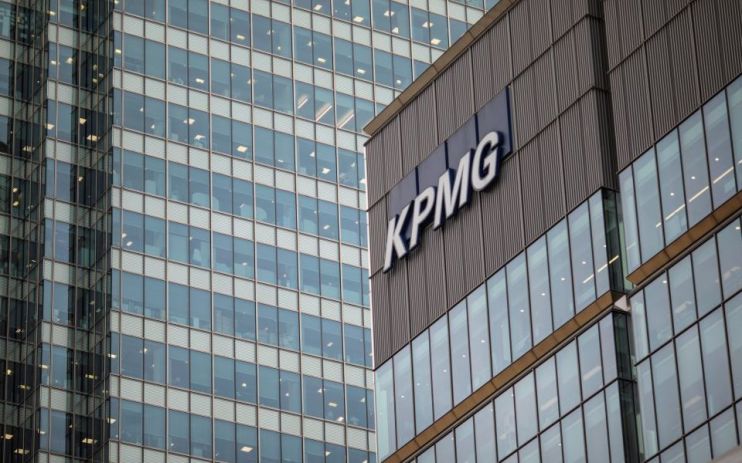Third of UK audits fail accounting watchdog’s quality tests

Britain’s accounting watchdog today said that a third of audits by the UK’s seven main accounting firms failed quality tests this year, amping up pressure for widescale reform in the sector.
The Financial Reporting Council (FRC) said 29 of 88 audits carried out by Deloitte, PWC, EY, KPMG, BDO, Grant Thornton and Mazars this year needed improvements, with seven of these requiring significant improvements.
Seven out of 18 KPMG audits inspected by the FRC required improvements, while three out of eight audits by BDO and four out of nine by Grant Thornton were deemed insufficient, with two in need of significant improvements.
The figures mark a significant increase from last year, when the FRC found that just over a quarter of audits fell short of quality thresholds.
The FRC said the fact that a third of audits by the UK’s main accounting firms were deemed insufficient this year was “unacceptable”.
“We are concerned that firms are still not consistently achieving the necessary level of audit quality, said David Rule, the FRC’s executive director of supervision.
“While firms have made some improvements and we have observed instances of good practice, it is clear that further progress is required. The tone from the top at the firms needs to support a culture of challenge and to back auditors making tough decisions.”
It comes as the business, energy and industrial strategy (BEIS) committee today accused the government of dragging its feet on proposed audit reforms, after the government published its response to the committee’s inquiry into the collapse of Thomas Cook last year.
The travel firm collapsed last September, leading to the repatriation of more than 150,000 British customers which cost the government at least £156m, according to the National Audit Office (NAO).
An initial inquiry into its demise last October pointed fingers at the government for not bringing forward large-scale audit reforms, and urged Parliament to push on with legislation to replace the FRC with the Audit, Reporting and Governance Authority (Arga).
Committee chair Darren Jones said: “Recent audit scandals highlight the need for the government to tackle this issue as a matter of urgency.
“At a time when businesses are facing tough trading conditions and when their balance sheets are under significant pressure, it’s important investors and other stakeholders can have confidence in audits.”
The accounting industry has come under increased regulatory scrutiny over recent years following high-profile audit failures at Carillion, BHS, Patisserie Valerie and more recently Germany payments fintech Wirecard.
Germany has vowed to overhaul its accounting industry as part of measures to soften the fallout of Wirecard’s collapse last month, after auditors found a €1.9bn (£1.72bn) black hole in its financial accounts.
Jorg Kukies, Germany’s deputy finance minister, said the Wirecard affair showed “self-regulation by the auditors doesn’t work properly”.
Last week, the FRC ordered the Big Four accounting firms — PwC, Deloitte, EY and KPMG — to outline plans for the separation of their audit units by October, in the largest shake-up of the industry in decades.
The FRC has given the Big Four, which audit all of the FTSE 100 and all but 21 of the FTSE 250, until 2024 to implement changes that will see an increase in competition and an improvement of regulatory oversight.
However the FRC’s intervention stopped short of a full break-up of the firms, which would see audit teams split into independent legal entities. A structural break-up had been long called for after the collapse of outsourcer Carillion in 2018.
Prem Sikka, an accounting expert and emeritus professor at Exeter Business School, last week told City A.M. the FRC’s plans were “utterly inadequate”.
“What we need is a complete structural — not an organisational — split, where audit is the only thing that the accountancy firms must do and consultancy has to be in a legally separate organisation,” he said.
The FRC argued the changes were “the first in any country and have been achieved without the need for legislation”, adding that it “will monitor [the] audit firms’ application, and act if we feel firms are not following them either in letter or spirit.”
But critics have urged the government to implement changes at the core of the accounting sector, warning that increasing audit blunders seem to pose an industry problem.
Simon Bittlestone, chief executive of financial analytics firm Metapraxis told City A.M: “The solution requires the model to change, and become more technology-based.
“Part of the problem is that the audit firms are still relying on people to do the audits. Until we see that we’ll still see fraud and accounting failures causing all sorts of challenges.”
“Audit failure has history, and it looks like the trend is increasing not decreasing, so I think it’s generally accepted that this is an industry problem.”
Before the Open: Get the jump on the markets with our early morning newsletter